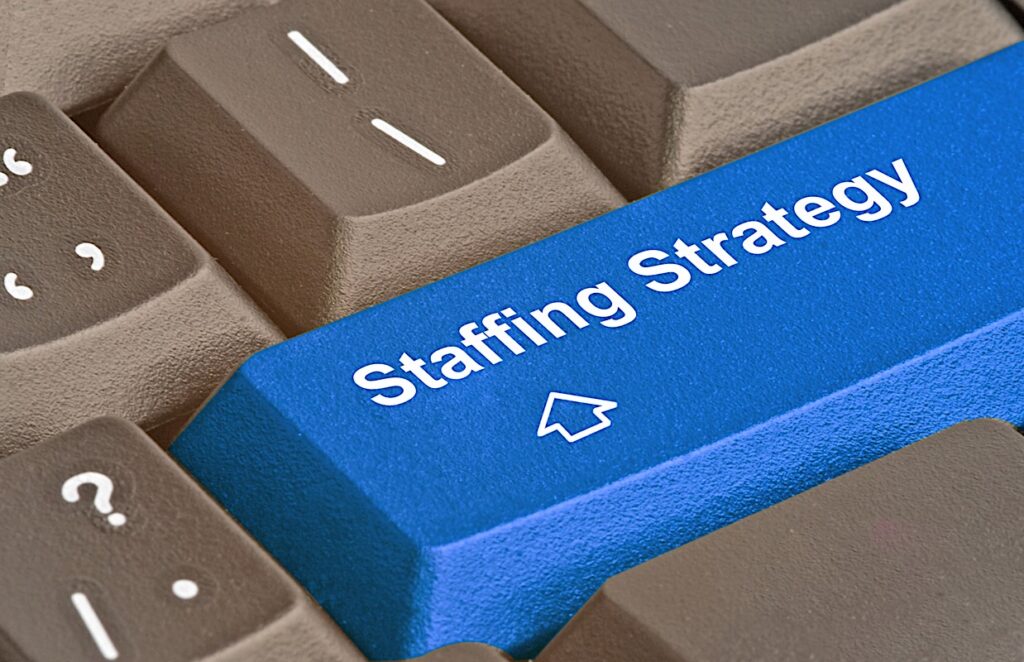
Temporary Staffing: A Solution to Workforce Flexibility, Dynamic Markets and Reduced Infrastructure Costs
In today’s dynamic business environment, adaptability has become more than just a buzzword—it’s a necessity. Companies frequently encounter periods of change or growth that demand swift responses and adjustments. One effective strategy to manage these transitions is through temporary staffing. By leveraging a flexible workforce, businesses can navigate these periods with greater ease and efficiency.
Why is temporary staffing so beneficial? Let’s delve into some key advantages:
- Flexibility: Temporary staff can be hired for specific projects or seasons, allowing businesses to scale their workforce up or down as needed without the long-term commitment of permanent hires.
- Cost-Efficiency: Avoid the overhead costs associated with full-time employees, such as benefits and long-term salaries, by hiring temporary staff only when necessary.
- Speed: Quickly bring in skilled professionals to address immediate needs, ensuring that your business can maintain productivity and service quality even during periods of transition.
- Expertise: Temporary workers often bring specialized skills and fresh perspectives that can be invaluable during times of change, fostering innovation and problem-solving.

As businesses grow or adapt to market changes, temporary staffing becomes an essential tool in maintaining operational efficiency. By understanding and utilizing the benefits outlined above, you can effectively manage your workforce during fluctuating periods.
Fast Facts
- 40% of companies use temporary staffing to fill gaps during peak periods
- 70% of businesses report increased productivity with temporary staff
- 60% of temporary workers receive a permanent job offer
- Temporary staffing can reduce labor costs by 20%
- 85% of companies use temporary staffing for specialized skills
- 90% of companies say temporary staffing provides greater workforce flexibility
Key Benefits of Workforce Flexibility
Temporary staffing allows you to adapt to your company’s immediate needs without committing to the long-term costs associated with permanent hires. This flexibility lets you scale your workforce up or down based on market demands, project timelines, or seasonal fluctuations.
If your business is experiencing a period of rapid growth or transformation, temporary employees can help ease the burden on your core team, providing essential support without the overhead of additional full-time salaries and benefits. You can tap into a pool of skilled workers ready to contribute, helping to drive efficiency and maintain the momentum of your business growth.
Moreover, utilizing a staffing agency can streamline your hiring process considerably. Agencies have access to a wide network of professionals, allowing you to fill vacancies quickly and efficiently. This can be particularly beneficial when you need specialized skills for short-term projects or unexpected workload peaks.

Another significant advantage is the opportunity to assess potential employees without a permanent commitment. Temporary-to-hire arrangements enable you to evaluate a worker’s performance, fit within the company culture, and overall impact before offering a long-term position. This trial period can save time and resources in ensuring the best hiring decisions for your team.
Temporary roles also provide employees with valuable on-the-job training and the ability to sharpen their skills. This continuous skill development not only benefits the temporary workers but also ensures that your business has access to the most up-to-date and competent professionals. In fact, over 60% of temporary workers report gaining new skills, which can enhance their productivity and contribute to a more dynamic workplace.
Ultimately, temporary staffing is a strategic tool that balances flexibility with stability, allowing you to optimize your workforce management effectively.
Temporary hiring allows businesses to quickly scale up or down based on market demand:
- Many companies find temporary staff can be onboarded faster, improving response times in critical periods.
- Utilizing temporary staff can decrease the time spent on recruitment, allowing HR teams to focus on strategic initiatives.
- A significant percentage of temporary workers transition to permanent positions, providing an extended trial period for employers.
Cost Efficiency in Temporary Staffing
Temporary staffing allows you to manage costs with remarkable efficiency. By hiring temporary staff, you can address specific needs without the financial burden of long-term commitments. For instance, instead of onboarding a permanent employee with full benefits, you can bring in a temporary worker who is well-suited for the task at hand.
Moreover, in periods of fluctuating demand, temporary staff enable you to scale your workforce up or down accordingly. This agility means you are not paying for idle employees during slower periods, nor are you understaffed during peak times.
Temporary staffing offers a cost-effective way to assess potential long-term hires. You get the opportunity to evaluate an employee’s performance and cultural fit without making an immediate permanent investment. If a temporary worker proves to be a valuable asset, transitioning to a full-time role becomes a seamless and financially justifiable decision.
Managing a Blended Workforce: Temporary and Permanent Staff
Successfully managing a blended workforce of temporary and permanent staff requires a strategic approach — which can benefit from a fully integrated HR company such as Pivotal HR Solutions.
An inclusive culture where all team members, regardless of employment type, feel valued and integral to achieving the company’s goals. Communication is key, particularly in ensuring that temporary workers are well-informed about their roles and how they contribute to larger team efforts.
One of the first steps you can take is to clearly define roles and responsibilities. Establish expectations for both permanent and temporary staff, ensuring that everyone understands their tasks, the chain of command, and whom to approach for support. This minimizes confusion and boosts productivity, allowing each team member to focus on their specific tasks with clarity.
Offering on-the-job training to temporary staff can bridge skill gaps and enhance overall team performance. Temporary workers who perceive growth opportunities are often more motivated and productive, contributing positively to the workplace culture.
Collaboration tools and regular check-ins can also play a significant role. Utilize collaborative platforms and regular meetings to keep everyone aligned on project goals and timelines. This helps in fostering a sense of camaraderie and ensures that temporary staff are not isolated from permanent employees.
In essence, the strength of a blended workforce lies in its flexibility and the diverse perspectives that temporary staff bring. By taking a proactive and inclusive approach to management, you can leverage the strengths of both temporary and permanent employees to drive success in periods of change or growth.
Working with an integrated HR solutions company such as Pivotal HR Solutions, with scalable Temporary, Permanent, Management and Payroll solutions can allow you to implement against even the most dynamic of business plans and product-development roadmaps.
Contact the Experts at Pivotal HR Solutions:


 Our HR solutions experts can recommend the right mix of HR outsourced services to make your entry into Canada easier.
Our HR solutions experts can recommend the right mix of HR outsourced services to make your entry into Canada easier.  Pivotal Employment Management Services co-hires your workforce, simplifying entry of your business in Canada.
Pivotal Employment Management Services co-hires your workforce, simplifying entry of your business in Canada. 















